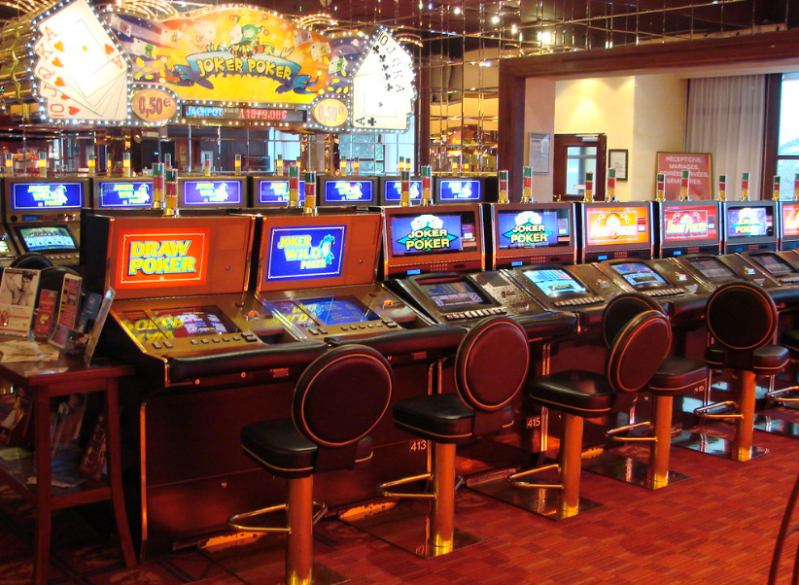
This world of gambling has experienced a significant evolution over the years, transitioning from traditional brick-and-mortar establishments to dynamic online environments. With technology continues to progress, the way individuals interact with games of chance has shifted dramatically, offering fresh opportunities and experiences. This evolution is not just about ease, but also about accessibility, with virtual gambling sites making it possible for a wider crowd to experience the excitement of gambling from the comfort of their own homes.
In the initial days of casino betting, the atmosphere was characterized by the vibe of the gambling floor, filled with the sounds of spinning roulette, clattering chips, and excited gamblers. This traditional model demanded physical presence, making it a community event as much as a personal one. However, with the rise of the online world and mobile technology, the environment began to evolve. Currently, digital platforms provide a wide range of gambling choices, catering to different tastes and enabling players to participate in games at their convenience and from any location. This transition has not only changed the way bets are placed but has also brought in innovative features that improve the overall experience of playing.
The History of Casino Wagering
Gambling betting has deep historical roots that can be followed historically to early civilizations. The first known types of gambling can be traced back to around 3000 BC in Mesopotamia, where dice made from bones and various materials were used in games of chance. As societies advanced, so did the forms of gambling, leading to more structured forms of wagering that began to emerge in diverse cultures.
The Roman Empire and Greeks played a significant role in shaping the world of casino wagering. They incorporated games of chance into their social events, with records of betting on various events, from chariot races to gladiator games. The development of more advanced games and the creation of wagering practices set the foundation for the casinos we recognize today. The rise of betting during these times hinted at its capability as a form of entertainment and riches creation.
Fast forward to the 17th century, when the initial official gaming establishments began to appear in the continent. The Gambling House di Venezia in the Italian city is often cited as the world’s first casino, inaugurating its doors in 1638. These establishments marked the transition from informal betting practices to formalized and structured gambling venues, where people could congregate to partake in a variety of activities. The concept of gambling wagering became more entrenched in culture, paving the way for the contemporary gambling industry we recognize today.
The Expansion of Digital Gaming Platforms
The emergence of the web revolutionized numerous sectors, and casino betting was not excluded. The late 1990s saw the introduction of the initial virtual casinos, providing players the ability to access a wide range of games from the convenience of their houses. This new platform abolished the need for a physical casino visit, presenting opportunities for people who may not have had easy access to traditional gaming establishments. Virtual casinos quickly rose to popularity, attracting a varied audience eager to test their luck at their favorite games.
As technology advanced, so did the standard of online casino experiences. State-of-the-art software and enhanced graphics made virtual games more engaging and exciting. Real dealer games were introduced, allowing players to connect with actual dealers via live streaming, bridging the gap between traditional and digital gaming. The flexibility of playing on different devices, such as mobile phones and iPads, further fueled the growth of virtual casinos, enabling players to gamble whenever and wherever.
Legal changes also played a crucial role in the rise of virtual casinos. Many jurisdictions began to develop legal frameworks governing virtual gambling, leading to greater consumer confidence. With these regulations in place, reliable operators emerged, providing safe payment methods and fair gaming practices. This legal support encouraged more players to engage, cementing online casinos as a key player in the gambling betting landscape.
The Future of Online Gambling
The future of online betting is set to transform the terrain of gambling gambling dramatically. With the ongoing advancements in technology, we can look forward to witnessing more interactive environments aimed at enhancing player engagement. Virtual reality and augmented reality are in development, set to design settings that replicate the thrill of physical gambling houses, while still providing the comfort of online play. This evolution will likely attract a wider crowd, such as those who may have once felt hesitant about going to conventional gambling establishments. ufastar-825
Another vital element of the outlook of digital gambling is the integration of machine learning and big data. Online platforms will utilize these tools to tailor user interactions, providing tailored suggestions according to unique betting trends and likes. Moreover, instant insights will help operators improve their services, identify patterns, and guarantee fair play. The effect will be a significantly dynamic and responsive betting experience, where users feel appreciated and understood.
To conclude, policy changes will hold a crucial role in shaping the future of gambling gambling in the digital realm. As authorities adapt to the increasing acceptance of digital gaming, we can anticipate clearer regulations that balance player safety with creativity. Sensible gambling features are likely to be incorporated more extensively, encouraging healthier gambling practices. In conclusion, the outlook of digital betting holds exciting possibilities as it continues to develop, delivering increasingly accessible, immersive, and protected environments for players everywhere.